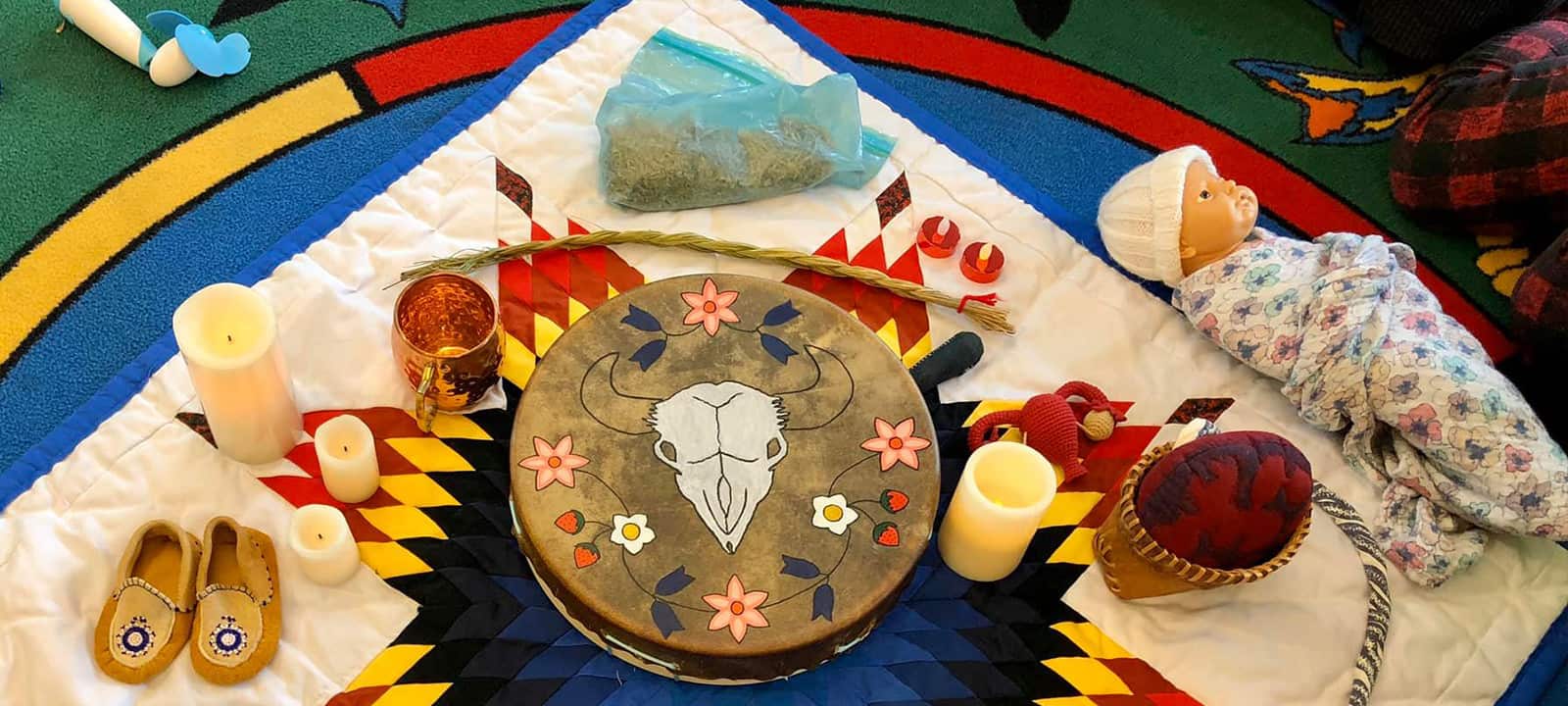Danette Jubinville’s great-great-grandmother was the last person to practice midwifery in her community before the practice was stopped when an Indian hospital opened in 1938 in nearby Fort Qu’Appelle, Saskatchewan.
“This work being an intergenerational calling is a common thread among the members of our Collective,” explained Jubinville, a member of the Cyr family from the Pasqua First Nation and co-founder and Director of Research and Education for the Ekw’í7tl Indigenous Doula Collective.
Ekw’í7tl, pronounced ah-quay-tull, means family in the Squamish language. This name, gifted to the Collective by a local Elder, represents the group’s goal to deliver culturally grounded prenatal education for Indigenous peoples, by Indigenous peoples.
“The catalyst for getting involved in birthwork was the birth of my daughter and my experience of the lack of culturally relevant care that was available to me. There was also a deeper sense of hopefulness towards reclamation of our culture and our identity,” said Jubinville, who is also a PhD student at SFU focusing on Indigenous reproductive and maternal wellness.
The Collective, founded by Jubinville and now-midwives Keisha Charnley, Jessica St. Jean, and Sophie Bender Johnston in 2015, offers care to Indigenous families through the full-spectrum of reproductive health-related experiences, including pregnancy, birth, postpartum, pregnancy loss, family planning, menstruation, and abortion.
Miranda Kelly, from the Soowahlie First Nation and another member of the collective who now serves as the Director of Indigenous Women and Family Health at Vancouver Coastal Health – Aboriginal Health, was similarly drawn to birthwork after the birth of her two daughters.
“My postpartum experience after having my first daughter was really transformative for me,” she noted. “I felt totally underprepared and that I did not have the right support network in place.”
After gaining access to an Indigenous doula from Ekw’í7tl after her second birth, Kelly began thinking more deeply about what kind of care Indigenous families need during this period, and began her journey in birthwork with the Collective.
“The Collective was launched to provide a community of support for Indigenous birthworkers in Vancouver, recognizing that the historical, social, political, and economic context that our work lies within is different from mainstream birthworkers,” explained Jubinville.
Returning control
Ekw’í7tl doulas work alongside midwives, doctors, and others to educate and advocate for Indigenous women’s health and gender inclusivity in reproductive health care.
More recently, the group has launched several educational and research initiatives in collaboration with CHÉOS Scientist and Program Head of Knowledge Translation, Dr. Sarah Munro.
“My role is to facilitate these projects by helping provide access to funding, recommendations around evaluation, and other support,” said Dr. Munro. “Community-based research projects are so much more impactful than other types of research. As university researchers, we need to facilitate and support autonomous decision-making in the community.”
Ekw’í7tl education programs aim to deconstruct mainstream myths and stereotypes about childbirth and to encourage reclamation of Indigenous birth practices.
“Colonial control over Indigenous lands and Indigenous bodies has impacted Indigenous birthing practices,” explained Kelly. “We work to reclaim power back, saying ‘You can make decisions over your body and over your birth.’”
These programs are designed to honour the diverse needs and traditions of Indigenous peoples and resist pan-Indigenizing the curricula, while recognizing the parallels between Nations.
“The way that Indigenous birth looks and is defined is by each person; each birth looks different,” added Kelly. “Our work is about opening up possibilities to people and leaving it up to them. We support birthers to choose what is meaningful for them.”
You can help support community-based research projects like this by making a gift today at donate.helpstpauls.com/CHEOS.
This university–community partnership was initially supported through a grant from UBC’s Partnership Recognition Fund. The full version of this story originally appeared on the CHÉOS website.
